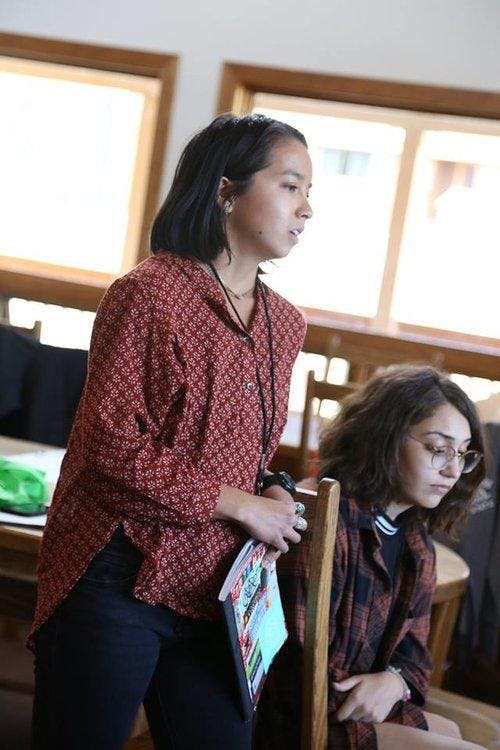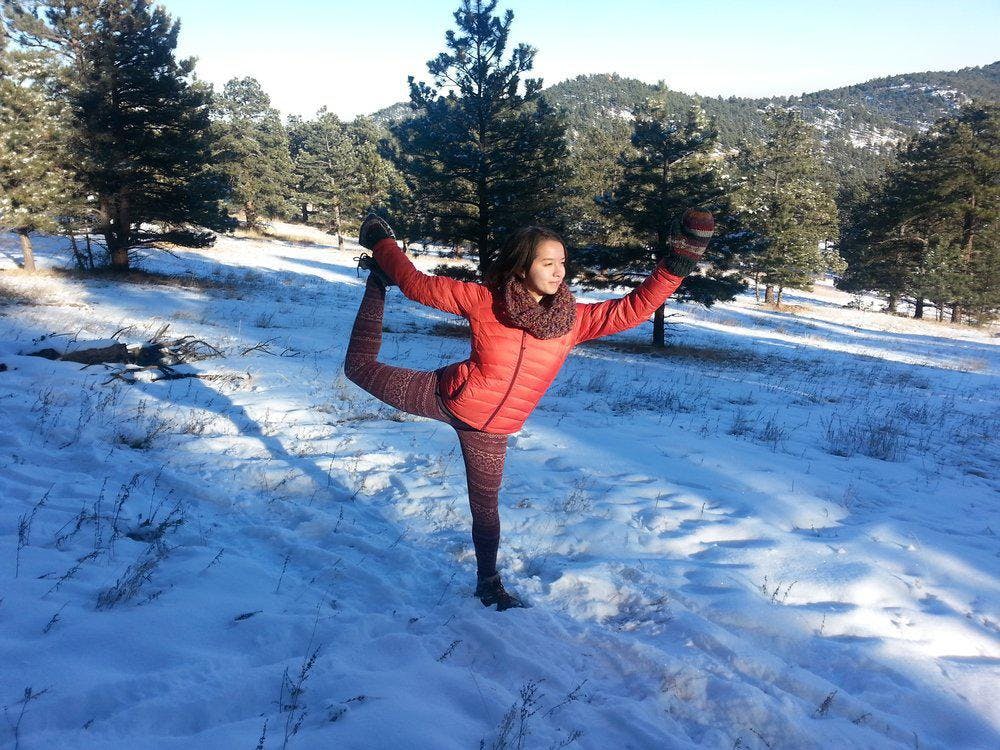"To Dream and Be Intentional" — Interview with Shirley Man-Kin Leung
Shirley Man-Kin Leung is a Chinese, Filipino immigrant and organizer of the Asian American collection for Alternative Worlds on AltSalt.
This is the first in a series of posts to highlight members of the AltSalt community. First up we have Shirley Man-Kin Leung, a community organizer and yoga teacher based on traditional homelands of the Arapaho, Cheyenne, and Ute nations (Northern Colorado), as well as organizer behind the Asian American collection for Alternative Worlds.
In this series, we hope to showcase and celebrate the diverse perspectives and creative work of our communities, to learn, find inspiration, and share resonance with one another.
Tell us about yourself! How did you get involved with AltSalt?
I am a sister, a daughter, an auntie, an immigrant, a lover, a gardener, an artist and lover of life.
I got involved with AltSalt through my friendship with Artemio, although we haven’t (yet!) met IRL, we participated in this amazing 6-month long virtual course called Global Reciprocity at the Ayni Institute a few years ago, and have stayed connected ever since then. In that course, one of the things we did was work together to map our entire lineage and legacy of life as humans, to understand where we are, who we are, from 5 billion years ago to today… it transformed my life and that is where the seeds of a lot of my work today was born, and where AltSalt also was born!
What does Alternative Worlds mean to you, and why did you decide to organize an Asian American collection?
Alternative Worlds is about giving us the opportunity for "otra forma de ver" — other ways of seeing. We’re in this liminal space, between the ways things had been and an unknown future. I think it's our role, as artists, to be stewards of this in-between space, to be able to hold and see multiple worldviews and swirl them together and breathe into a reality another way of being. The only way to be with all of the contradictions and transitions we’re in right now, is through art and activism. I think that this is how we will be guided through a transformation process towards a collective awakening, moving us towards global reciprocity.
I wanted to organize the Asian American collection because, as a mixed race, Chinese, Filipino immigrant, who was adopted and raised by white American parents, my own healing journey has been about finding community to heal my own wounds and connect with my ancestors lessons for these times we find ourselves in.
Having a collection is about building community for artists, where we can look to each other in our different but common struggles for liberation, and say I see you, I know myself through your struggle, we are done appealing to the dominant white culture, instead we are prioritizing each other, first and foremost.
The silos we find ourselves in are designed by the empire, and it's exhausting constantly appealing to dominant culture or resisting the world coming at us hard, seemingly alone in our struggle, finding ourselves asking for crumbs... the alternative is, you create a community where you can look around and see our power and creativity and strength is immense, we can learn from each other, we can create a vision together, we can show up and show our strength in ways that are impossible to do alone, it's immensely hopeful!
The racist, colonial regimes are very clear about the world they want, they want the status quo. We’re less ready (in part by design I think) to declare the world we want, our imaginations are atrophied in part because of always being in a reactive / traumatic state of resistance. We must collectively put forth the world we want, that we deserve, that is our inheritance from these freedom fighters, our ancestors, we have everything we need to not only articulate that world but to build it, the constant affirmation that we are enough, we have what we need to be in relationship with one another in deep and meaningful ways to build that world.
What’s your own creative practice like?
My creative practice is hard to define because it takes so many different forms. Poetry has definitely been a guide for me though, and there is this quote by Nayira Wahid speaking to my own feelings and intentions around my creative practice right now:
“You do not have to be a fire for every mountain blocking you, you can be a water and soft river your way to freedom too”
I exercise my creative muscle as a daily practice, as a way of taking time to slow down and be intentional with where I’m putting my energy. I also consider my creative practices to be part of a larger whole of resilience practices, which our ancestors and communities have been cultivating to survive and thrive. I really do believe that we need to be just as rigorous in our play, pleasure and our joy, as other forms of work. When we are in a reactive state, we aren’t able to respond creatively, and that's by design.
Lastly, my creative practice is both playful and oftentimes silly, but it also serves a larger purpose and has been critical for me in my own healing journey. For example, I recently shared a piece of poetry I wrote about my mother’s mental illness and what it’s taught me about honoring joy and healing intergenerational trauma. Speaking about things directly is such a big shift from how I articulate through poetry, and it’s powerful to see different gifts each form has.
What do you think the role of art is in our culture?
I spend a lot of my energy and time thinking about cultural change. Changing our hearts, minds, body and spirits. Policy and social change can move really slow. What can make change happen is the people, and there are many instances of this happening in history (take the Mexican Revolution for one example). I believe that art plays a critical role in this aspect. I also think art has a role in spreading and sharing wisdom and knowledge. Sharing knowledge is about building power, not increasing paranoia. We need to understand what is the system we are up against, but the same way we want to study what we don’t want, we need to study, imagine, and create what we do want to see!
Artists are the stewards of our collective imagination. We need both imagination and memories. Artists can remember, reclaim and reframe; to find things that were lost and hidden on purpose and own and reclaim them through our creative practices.
When it comes to re-building, creating alternative worlds, I think the role of artists is to take the time to slow down to dream and be intentional around the world we want to see. How do we start to put those dreams and strategies into play and then practice? It’s not enough to just think about if we aren’t doing them, practicing! And remember that creating and sharing art is collective! The role of artists is about bringing people along with you, we can't do it alone, where are your homies at?
What do you hope participants get out of being a part of this?
A sense of community, some budding friendships, fresh ideas, support for your own creative practices, and just to have fun and be challenged in some new and exciting ways!
You can find out about Shirley's yoga practice here, and find the Call for Submissions for the Asian American and Andean Collections here. We also invite you to join us for our workshop weekend from July 17-18 th, 2021!






